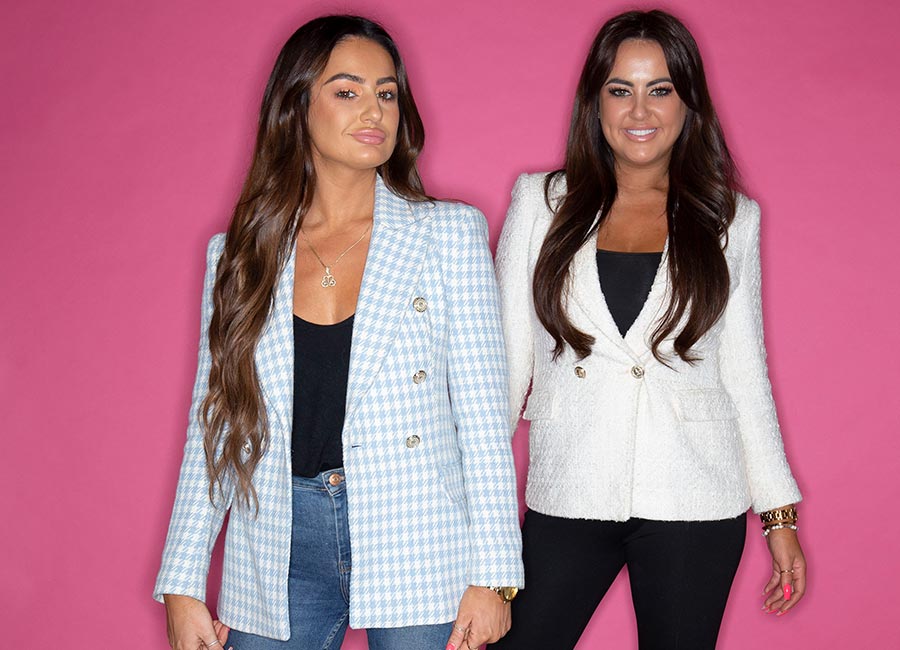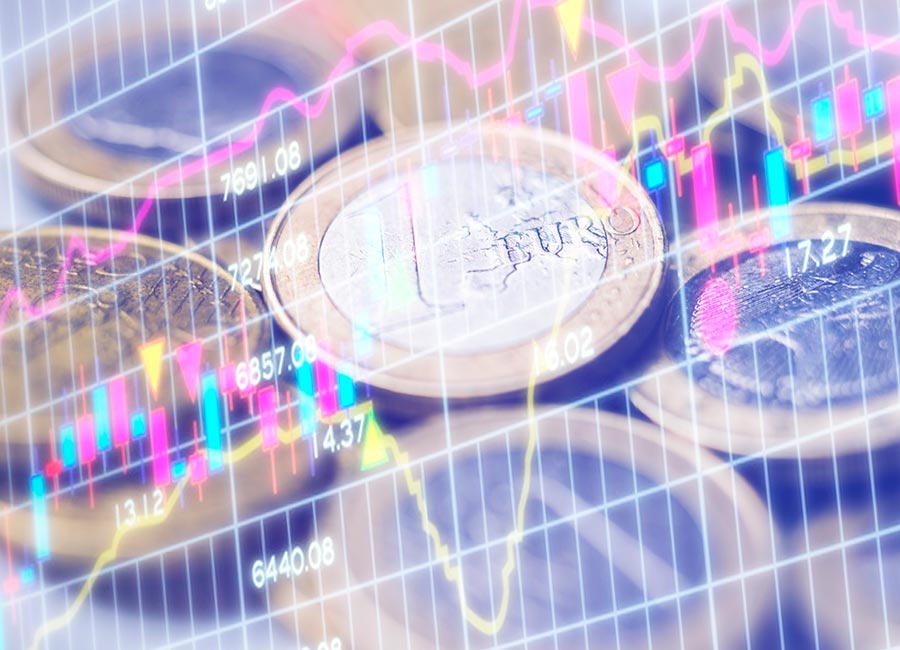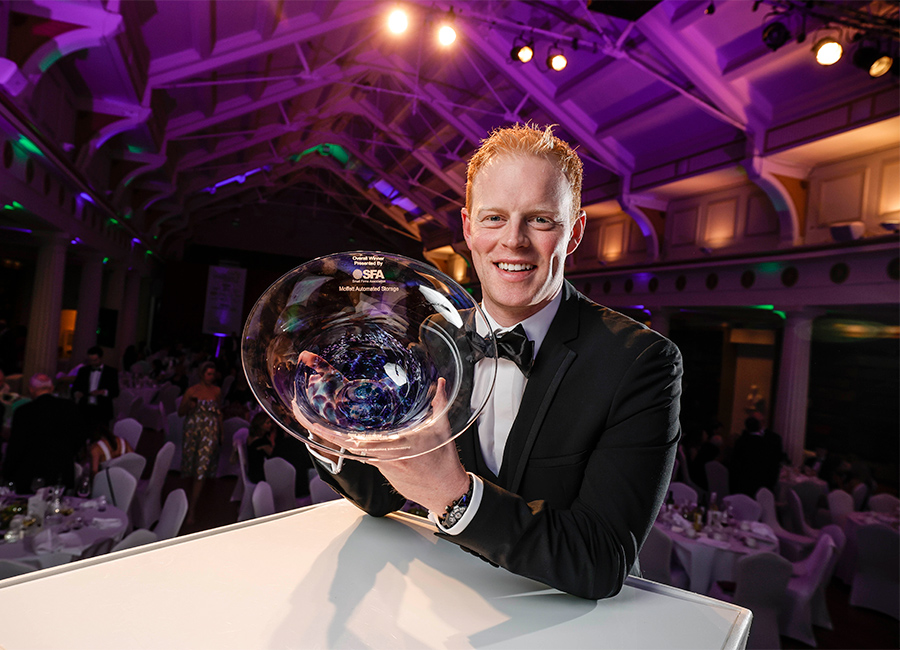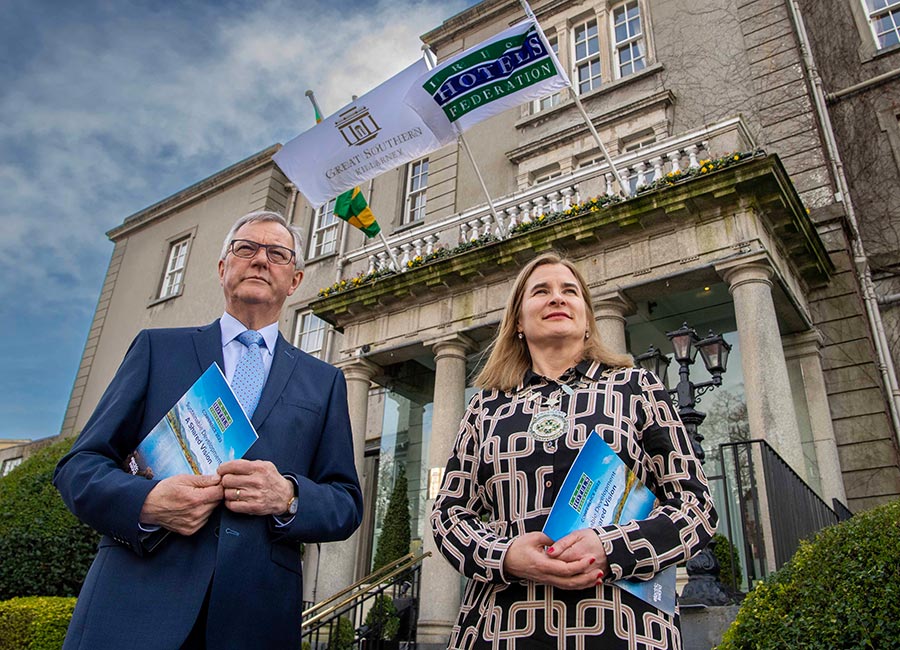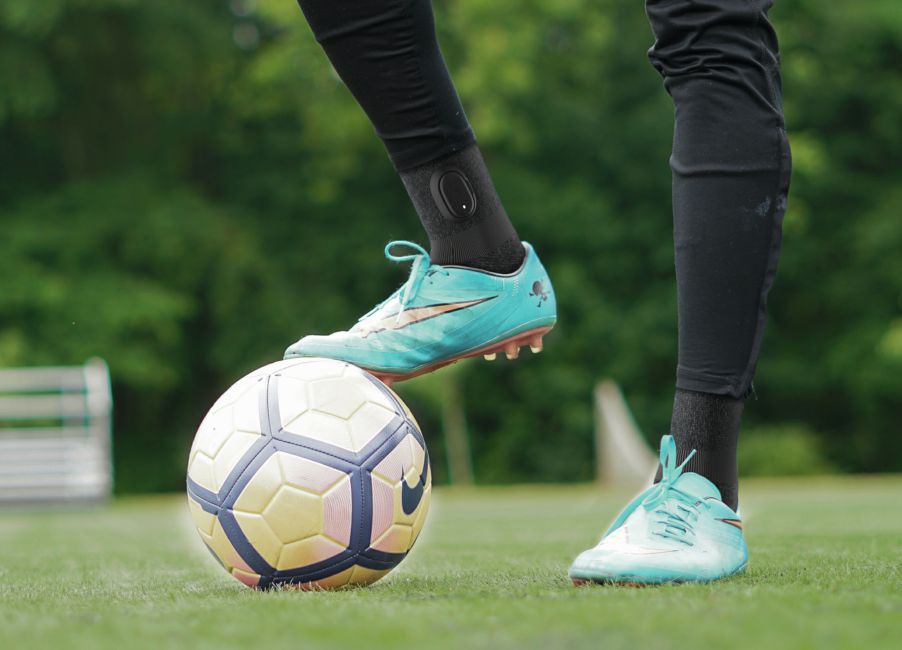After a stint promoting cosmetics as social media influencers, sisters Bláthnaid and Aoibhinn Murphy decided to create their own beauty brand. Their BiaBelle Beauty business has grown from a kitchen-table enterprise to competing with some of the biggest names in the industry, writes Siobhán O’Connell
Social media has had a hugely disruptive effect on marketing. Firstly, the platforms provided a direct channel to consumer eye-balls, with ads that could track them around elsewhere on the web. With the emergence of Instagram and TikTok came the phenomenon of influencers. Suddenly anyone could develop a persona with the aim of garnering thousands or millions of followers, and reap an income stream with paid-for product plugs.
Millions of ‘creators’ around the world now earn a living from peddling their influence. Research company Nielsen counts 13.5m influencers in the U.S. and 10.5m in Brazil. Celebrities attract the largest platform audience – footballer Cristiano Ronaldo has 453m Instagram followers – but people you’ve never heard of have huge followings too.
Italian influencer Khaby Lane is the second-most followed creator on TikTok globally (137m) and has 75m followers on Instagram too. When fashion brand Hugo Boss devised a social media campaign earlier this year to refresh the brand, Lane was one of the 200 influencers included in the marketing mix.
According to the 2021 Nielsen Trust in Advertising study, seven out of ten consumers trust advertising, opinions and product placements from influencers.
Other Nielsen research claims that an average of 80% of influencer ad viewers were able to recall seeing the brand featured in the ads, and that influencer ads drove a nine-point increase in brand affinity and purchase intent relative to consumers who did not see the influencer ads. As a result, says Nielsen, global marketers are increasing social spend by 50% in the next year, more than any other channel.
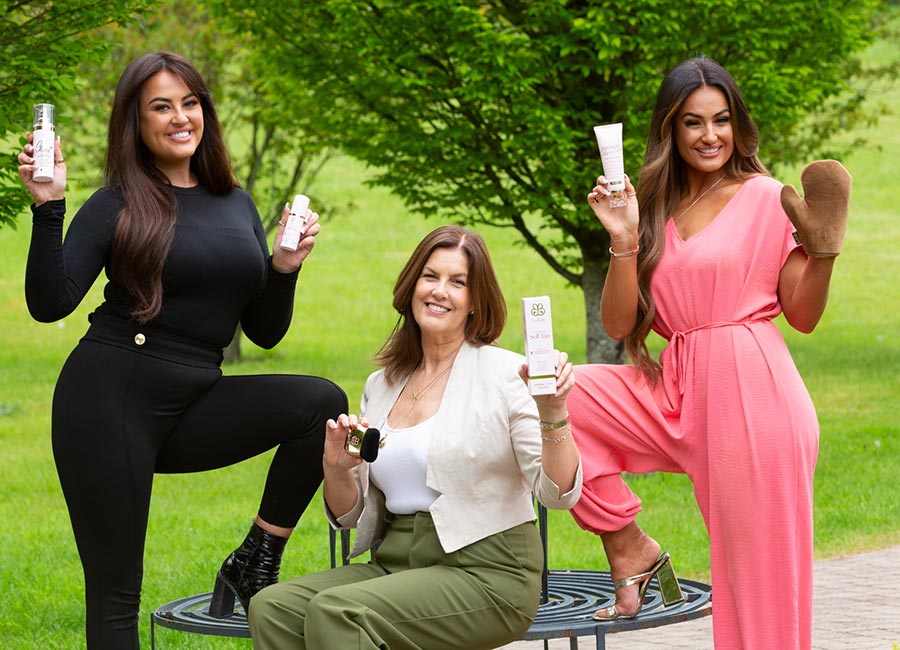
Dublin sisters Aoibhinn and Bláthnaid Murphy also started out on the influencer route. Unlike most of their photogenic peers, they pivoted to start making and selling the type of beauty products they had previously been paid to promote. And the pivot has worked out really well.
Their business BiaBelle Beauty had turnover of €1,140,000 in 2021, up from €820,000 the year before, and booked a net profit of €106,000.
Bláthnaid (27) is the younger of the two sisters and has 125,000 followers on Instagram. A professional make-up artist since the age of 16, she became an influencer by accident. “I was working in a make-up shop called Inglot,” she recalls.
“Every day you had to go into work with a full face of make-up on. I used to just take a picture of my face before work and upload it to Instagram, just to show my make-up. People just started following me and my following just became bigger and bigger.
“Then brands would contact me and ask me to do collaborations. My dad was always saying to me, you're making money for someone else, you need to sell your own product. And that’s what I was saying to myself too. I should be doing my own product because you don’t know how long influencing is going to be around.”
With the entrepreneurial push from their father and their mother Susan, who did spray tans for a few years while also working as an accountant, Bláthnaid then aged 21 and Aoibhinn then aged 22, launched BiaBelle Beauty from the Terenure family home in 2016.
Their first product was false eyelashes. Aoibhinn relates: “While we started with the lashes, we were working on the tan products in the background because tan is what Blá and I were both best known for on Instagram. We wanted to have a range of lashes that would include everything from a natural style to an extra dramatic style and that’s what we set out to do.”
The sourcing search for perfect lashes brought the sisters to the Cosmoprof Worldwide trade fair in Bologna in Italy, one of the largest beauty trade fairs in the world.
“Think of a trade fair in the RDS and multiply it by 20,” says Bláthnaid. “If you are looking to get something made in the beauty world, whether it’s lashes or make-up or whatever, you’ll find it at that show. You have to have a plan before you arrive or you just get lost.”
Biabelle’s lashes were not an instant hit. “There were days that we wouldn't have any orders,” says Aoibheann. “In our first two years in business, we worked from our kitchen table. Our sitting room was our warehouse where we would package up the orders. At the end of the day, we would take turns to walk to the post office with the dog.”
Their big break came when an influencer Maura Higgins wrote to the girls asking could she collaborate. If Biabelle sent her some lashes, she would promote them on social media. The sisters sent Higgins the lashes, and within a few months she won the reality show Love Island, with BiaBelle lashes attached. “Maura wore our Willow lashes and they are still one of our most popular products,” says Aoibheann.
There was a hairy moment in 2018 when the Advertising Standards Authority of Ireland upheld four complaints against BiaBelle, whose mink eyelashes were advertised as ‘cruelty free’. This meant that the product had not been tested on animals, but as the product was animal fur the watchdog decided that the ‘cruelty free’ claim was stretching it.
The easiest way for a start-up beauty brand to commence trading is to purchase white label products off the shelf and personalise the branding. The Murphy sisters eschewed this option in favour of formulating their own products.
“When we found a manufacturer at Cosmoprof, we would give them a brief, what we like, what colours we want, what we want the eyeshadows to do, basically everything about the product,” Bláthnaid explains. “Then the manufacturer formulates it for us. There is a lot of trial and error involved. They send us samples, we try the samples, send back notes and so it goes until we are happy with the product.”
Though Biabelle’s product packaging is designed in Ireland, it is made in China, again with a supplier sourced at Cosmoprof. The sisters liaise with their Chinese packaging partner mainly on WhatsApp because they say it is quicker than using email and it allows them to send pictures back and forth. The main downside is that China being in a different time zone to Ireland “can be a bit annoying sometimes”.
Cosmoprof also introduced the Murphys to the concept of a Sourcing Agent. “The agent will check out the company for you before you sign any business deal. They’ll go to the factory and give you reassurances. That’s really important.”
Biabelle Beauty’s hero product, as they describe it, is the range of fake tans. Fake tan is a crowded market with brands Bellamianta, Coco Brown, Iconic Bronze, Sculpted by Aimee, SoSu, Tan Organic and Vita Liberata among the Irish brands, never mind the plethora of international brands, competing for shelf space.
So where is the gap in the market? The Murphy sisters homed in on creating a high-quality product, packaged beautifully but at what they say is a competitive price. At €23.95 for a bottle of Biabelle, it’s not the cheapest product in the market but it’s less than the €34.99 it costs to buy a bottle of St Tropez.
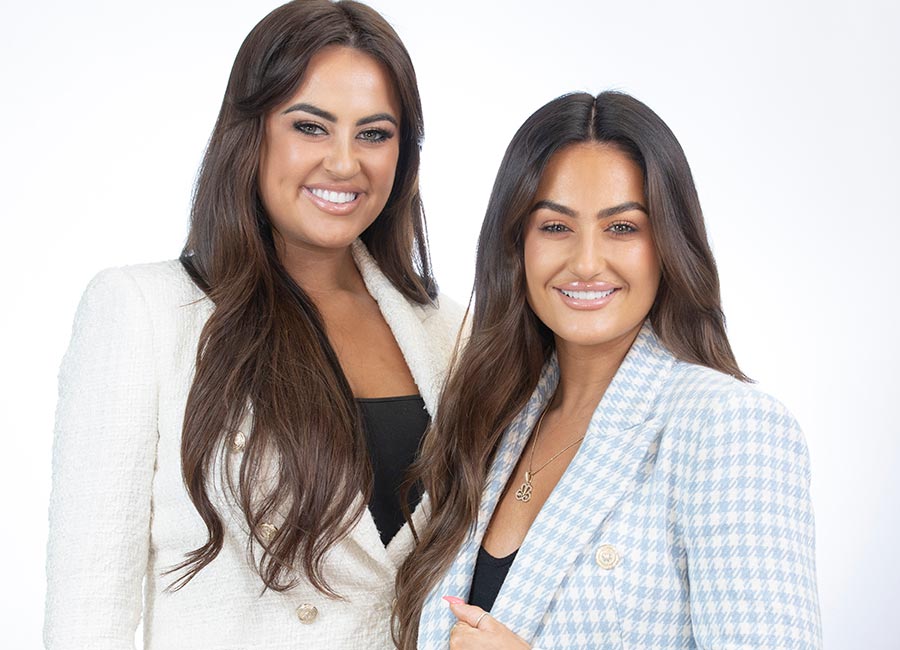
It didn’t work out with the first manufacturer they approached, and it took almost 30 attempts to finalise the product mix to their liking with a second manufacturer.
“We wanted certain ingredients like seaweed extracts and Hyaluronic Acid to give the fake tan some good moisture,” says Bláthnaid. “With the first few attempts, the tan just wasn’t dark enough. I remember one sample that turned orange on the skin. Then we realised that lotions don’t tan as dark as foam, so we switched to a foam and eventually we ended up with the product we wanted.”
It has been a trying couple of months for all fake tan brands, with a new EU rule forcing tanning brands to reformulate their darkest products. The EU regulation limits the use of dihydroxyacetone (DHA) - an ingredient that darkens the skin – in cosmetics to a maximum of 10%. Brand owners were prohibited from selling tan products above that level to retailers from January 2022, and all online ecommerce sales had to cease from April.
The BiaBelle Beauty website now sells over 30 different products, from the lashes to the tan, to eyeshadow and bronzer palettes and make-up brushes. Online sales are a big part of the business, driven by Biabelle’s panel of over 100 influencers and 13 brand ambassadors. When selecting an influencer, the Murphys consider whether the individual’s style and vibe suit their brand.
“We look closely at the engagements from their followers, how many people write on their timelines, and do the influencers write back,” says Bláthnaid. “Engagement is the most important metric. If the influencer talks to the camera, that is more likely to push a sale over the line because the people watching on the other end of the phone feel like the influencer is their friend and they will trust what they see. That's what sales are all about - it's the people trusting your opinion.”
Influencers can charge from a few hundred to thousands of euros to promote brands. “We have used influencers with many followers and the promotion went well, but we have also used micro influencers and the promotion went just as well. You might not get orders straight away after a promotion. It’s about brand awareness as well, and there could be a trickle effect and the orders will come in at a later stage,” says Bláthnaid.
“Sometimes you find micro influencers push themselves a lot more because they want to be bigger. My advice to other businesses starting out is to reach out first to the smaller influences who won’t charge but will accept product, and judge the response rates. We give the influencer a brief of what we want, how and where we want the promotion to appear, the dates for the promotion and captions. The influencer has to send us the draft promotion and we approve it in advance of it going live.”
Biabelle’s brand ambassadors, who include Dani Gilbert, Lucy Fitzgibbon, Saf Thompson, Jessica Cinelli, Fia Litton, Megan Coleman, Laoise Maguire, Nadia Duffy, Hazel O’Driscoll, Aaron Will and Imise Joey, commit to a certain number of posts each month. “Between ourselves and our brand ambassadors, there is a combined following of over 600,000 people across Ireland, England and Spain,” says Aoibheann.
Direct sales are complemented by shop sales. The Hickey’s pharmacy chain is a large customer and Biabelle exhibits at annual Cosmetic Association trade show in the RDS. To cope with growth in trade, two years ago BiaBelle rented a unit in Greenhills in Tallaght, where two people are employed for order fulfilment. In 2021, with a grant from South Dublin LEO, Biabelle installed a mezzanine floor in the warehouse to create more space.
With inflation biting, the sisters say they have been on a learning curve this year coming to grips with rising costs. According to Aoibheann: “Shipping costs have gone through the roof. We have absorbed the costs so far but obviously there might be a point when we have to increase our prices. Every year we ask ourselves how can we do better? It’s about keeping on top of things and knowing which parts of the business to invest in.”
The sisters’ main ambition for 2022 is to increase UK market penetration. “Liverpool alone has the population of Ireland and English people love their fake tan, so we believe BiaBelle will do very well in the UK. We are looking at partnering with an influencer who has over one million followers.”
As well as the financial rewards from creating their own venture, the other bonus is job satisfaction, says Bláthnaid. “We were never the type to abide by someone else's rules. It just feels so much better selling your own product that you've made that you love, like with all your soul. And the fact that we get to do it with our family is just fantastic. We are unbelievably grateful that we're still here doing it and that the business is growing. And any time you make an achievement, you can't beat that feeling.”


